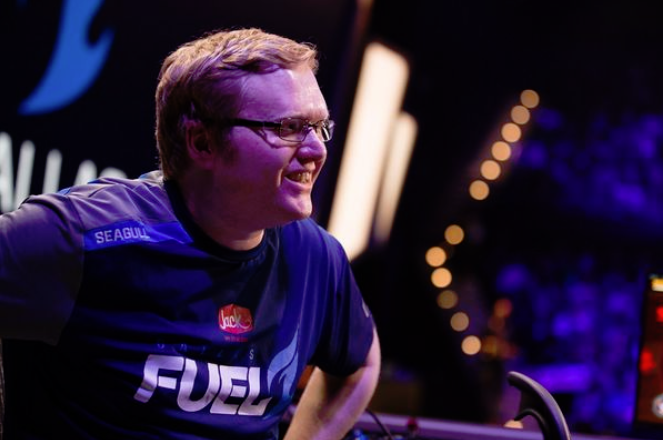
Recently, former pro Overwatch player and current full-time streamer Brandon "Seagull" Larned vented some of his frustrations with Overwatch on his YouTube channel. His main issue is that "good games are really good and bad games are really bad” and that “they [Blizzard] need to find a way to normalize the experience so when I click on competitive it’s not a coin flip."
He attributes many factors such as: lack of public player statistics, counter-play heroes like Sombra and Brigitte being introduced, and a stale composition meta. These are all valid parts that Seagull dissects in further detail. However, two other points he makes resonate with me, as in the past couple months I have experienced and come to the exact same conclusions he made -- these two points being the polarization of hero matchups, and the dominance of ultimates in team fights.

Some heroes are natural counters to others; that’s just the nature of any game that has unique characters. However, when this is taken to the extreme, an unhealthy “rock, paper, scissors” meta develops.
Characters like Brigitte have kits that completely nullify other heroes like Tracer, and the Tracer player is forced to switch or risk throwing away a game. If the Tracer player doesn’t want to switch, they must completely rely on their teammates to help them out, and when individual performance is dependent solely on assistance from teammates, the gameplay experience can be equally as frustrating.
Seagull gives the example of Ana vs. Doomfist. Besides one sleep dart, the Ana’s life is essentially in the hands of her teammates, as Doomfist’s combos are too potent for her to do anything. As a main tank player, and in particular a Reinhardt main, this meta can be quite frustrating.
"...whole matches are decided by whoever can win the first team fight, as the winner of the teamfights will walk out with a significant ultimate lead over your opponent,"
Reinhardt’s shield is his best asset, protecting him and his team from up to 2000 damage and any potential stuns. When a myriad of characters can simply CC (crowd control) him out of this, it leads to an incredibly frustrating experience.
Doomfist Rocket Punch, Sombra Hacks, Brigette Shield Bash, Ana Sleep Dart, and McCree's Flashbang all combined together into a flurry of attacks essentially renders Reinhardt as an ultimate farm for the opponent. Some Reinhardt games feel incredibly discouraging (another one of Seagull's points: quitting due to sheer frustration), as all game Reinhardt is simply a glorified punching bag, and quite literally not able to do much of anything.
Again my liveliness, and therefore my amount of fun, lies in my Zarya’s ability to protect me or my team’s ability to kill the enemy Brigette/Sombra/Doomfist. To make matters even worse for me, one of the few DPS characters I once played was Tracer, but as Seagull puts it: "if you’re playing Tracer and a Brigette shield stuns you, there’s no way to survive and there’s little to no counterplay."
Blizzard is taking steps such as Brigette nerfs in the PTR that rectify this issue, but in it doesn't erase the fact for the past few months ranked has been somewhat of a mess.

On a macro scale, Overwatch gameplay is 75% composed of teamfights. In these teamfights both teams use their Ultimate abilities en-masse and attempt to overwhelm their opponents with a series of powerful abilities in quick succession. Sadly, the outcome of teamfights is tipped heavily in favour of teams that can throw more of the strongest ultimate out the fastest.
I first noticed this in my own matches, when I realized a reoccuring callout I gave to teammates was “well, they just have their ults here… so I guess we lose," or “we have Graviton Surge and Transcendence so we can't lose."
Of course these predictions aren’t fulfilled 100% of the time -- sometimes players won’t follow up on Graviton or an Ana will land a sleep on a Nano-Blade -- but I’ll be damned if this wasn’t accurate at least 70% of the time.
So if games are won by team fights, and teamfights boils down to ultimates, in can be inferred that team fights are won by whoever can charge their ultimate the fastest. If this chain of logic is still true, then whole matches are decided by whoever can win the first team fight, as the winner of the teamfights will walk out with a significant ultimate lead over your opponent.
As Seagull points out: in Overwatch League Season 1, out of the 771 control points (King of the Hill maps) played, the winner of the first teamfight won 64% of the time.
Now some players might argue that ultimate farming, ult economy, and ult management are all core skills that will never change and is imperative the Overwatch competitive experience. I would agree, but when ultimate usage constantly tip change the tides by 180 degrees, a line has to be drawn.

A feeling that gamers should never have to experience on a consistent basis is hopelessness. Games are first and foremost meant to be fun, and some of the most memorable and exciting games are comebacks. When all seems lost and the opponent is inches away from the finish line, suddenly your team taps into some unknown power and surges ahead with a miraculous display of mechanical skill, or an ingenious and daring tactic.
Having the knowledge, the reassurance that there’s always a potential to comeback, is a powerful motivational force that can propel games from the lowest of lows to the grandest of victories. However, in recent seasons, a portion of my games are lacking that same potential. When you’re attempting to push a point with 30 seconds left on the clock, staring down the barrel of a Graviton Surge, Transcendence, and an enemy Brigitte ready to deny any hopes of a flank, it’s akin to flinging rubber bands at a brick wall.
Outside of pure gameplay, this feeling of hopelessness has another degenerative side effect: frustrating your teammates. Overwatch is very much a team game, and if your teammates have a pessimistic attitude, it creates a chain effect that results in nearly the whole team demotivated, or at the very least playing with a disgruntled player. This cyclical effect can bleed into future games, and the cycle can easily spread among a playerbase.
All is not lost, however, as with recent PTR and upcoming patch notes, game developers at Blizzard have announced upcoming changes to heroes, as well as introducing Ashe. For the time being, we can just sit tight, wait for the changes to kick in, and try to enjoy the game as much as we can.
Sort by:
Comments :0






